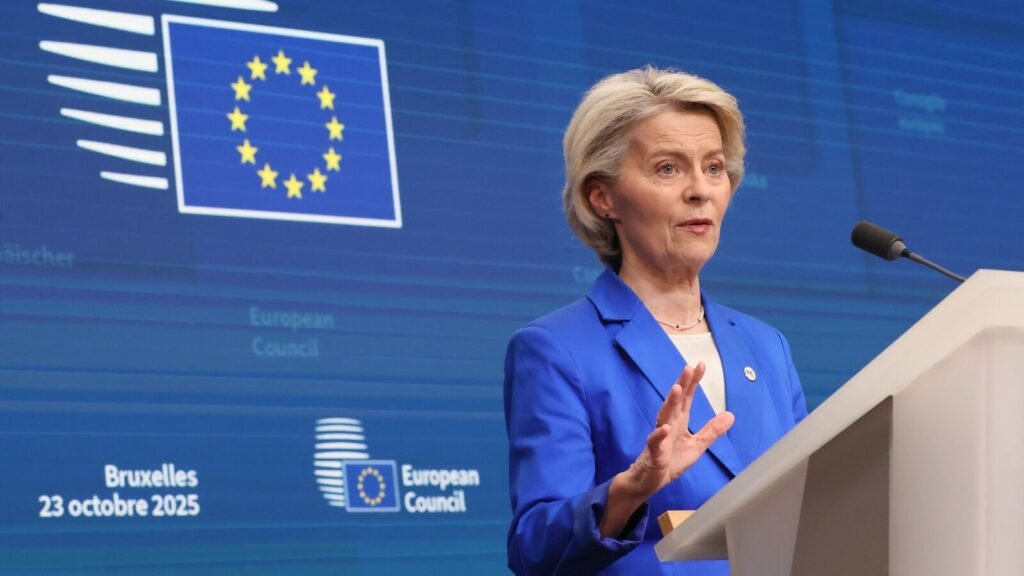The European Union is stepping up its efforts to end its reliance on China for rare earths, European Commission President Ursula von der Leyen said on Saturday.
Her comments came weeks after China imposed more restrictions on its exports of rare earths, which are used to make crucial components of machines and daily-use items.
“In recent weeks and months China has dramatically tightened export controls over rare earths and battery materials,” von der Leyen said at the Berlin Global Dialogue conference on Saturday.
The EU chief added that the tightening of restrictions poses a “significant risk”.
What is EU planning to do?
The European Union will tap on to other countries like Australia, Canada, Chile, Greenland, Kazakhstan, Uzbekistan and Ukraine to speed up partnerships over raw materials, Ursula von der Leyen said.
She further emphasised the need for a green route to achieve this goal saying that the plan would also include recycling of raw materials in items sold in Europe.
“The aim is to secure access to alternative sources of critical raw materials in the short, medium and long term for our European industries,” she said.
The plan will focus on everything, including joint purchases and stockpiling.
“We will focus on everything from joint purchasing to stockpiling. We will boost investment in strategic projects for the production and processing of critical raw materials here in the European Union,” the EU chief said.
The scheme, named ResourceEU, is similar to the plan that the EU had implemented after it stopped purchasing Russian energy following Moscow’s invasion of Ukraine.
In the short term, the EU will focus on finding solutions with its Chinese partners, according to von der Leyen.
“If you consider that over 90% of our consumption of rare earth magnets comes from imports from China, you see the risks here for Europe and its most strategic industrial sectors.”
“But we are ready to use all of the instruments in our toolbox to respond if needed. And we will work with our G-7 partners on a coordinated response,” she said.
The EU chief’s remarks came days after French President Emmanuel Macron urged leaders to consider using the so-called anti-coercion instrument — the bloc’s most powerful trade tool — against China.
ACI, the tool in question, has never been used. It was designed largely as a deterrent, and if needed, to respond to deliberate coercive actions from third countries that use trade measures as a means to pressure the policy choices of the EU or its members.
What’s China’s stance on rare earths?
China on October 9 imposed further export restrictions on its rare earth materials.
In its latest curbs, China added five rare-earth elements – holmium, erbium, thulium, europium, ytterbium, and related magnets and materials – to its list of elements that require export licence.
This brought the number of restricted rare earth minerals to 12.




